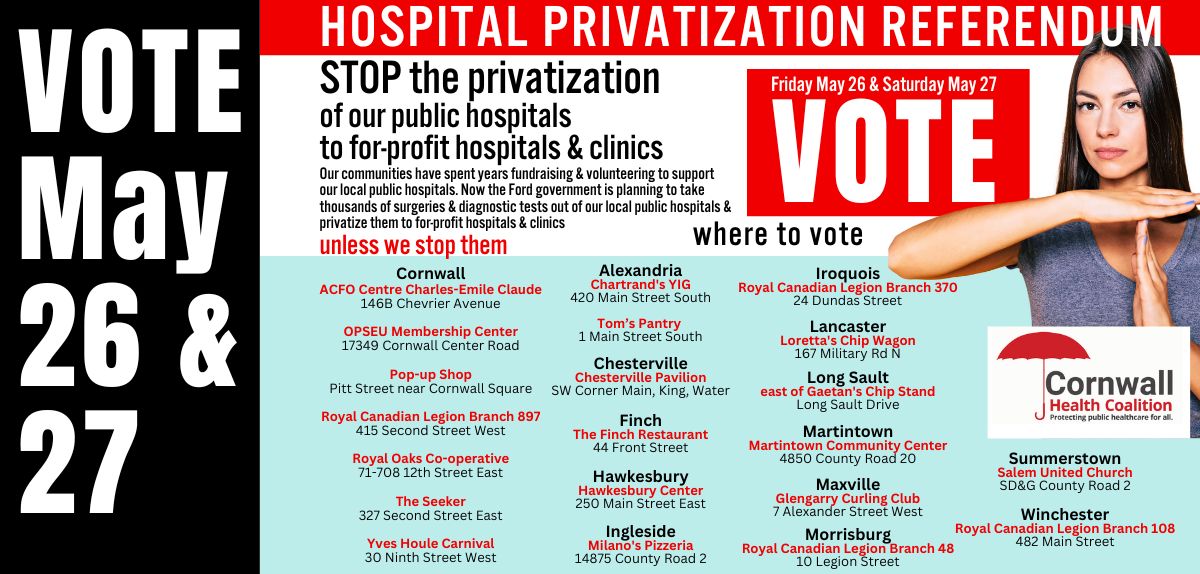
1: What is the difference between public healthcare and private healthcare?
In Canada, public and private are opposites. Public healthcare is administered to all qualifying residents on a non-profit basis, funded by the government in conformity with the Canada Health Act. Canada’s system is universal, portable, accessible, publicly administered and comprehensive. Private healthcare is administered on a for-profit basis. People must pay out of pocket or purchase private insurance to pay for healthcare expenses. In the US for example, except for those who qualify for Medicaid, residents are responsible for insuring themselves directly through private, for-profit healthcare plans.
2: Will private healthcare provide faster service and safer service? Why or why not?
Private health care could be faster, depending on one’s insurance coverage and/or ability to pay. However, statistics show that it is rarely safer. It stands to reason that a public non-profit system with patient well-being as the core value is inherently safer than one where the core value is investors’ profit margins. Long-term care and home care were once public in Ontario. The tragic result of a private for-profit system instead of a public one was starkly exposed by the COVID pandemic. Death rates in private LTC homes were five times the death rate of public LTC homes.
3. Can you talk about the cost of private healthcare to the patient and to the government versus public healthcare?
The cost is variable in a private for-profit system. Insurance rates vary by age, physical condition, medical history and so on, as well as by the deductible rate in the plan. Pre-existing conditions may not be covered. The more comprehensive the protection, the higher the fees. And of course, shareholder profit must be added. Whereas, in a public system, government revenue, including taxes covers the cost and all are treated equally.
4. Who benefits most from private healthcare and who is negatively impacted by private healthcare?
Private healthcare is an out-of-pocket expense – those with more money can buy upgrades and get treated faster. But the costs can be exorbitant. Given the medical condition and the expense of treatment, many procedures are not covered by an insurance plan and there are often additional costs. For-profit cataract clinics, for example, routinely charge patients 3-4 times the OHIP-covered cost. The middle class would pay a significant portion of their income to pay for a private and comprehensive insurance plan.
5. Would a shift towards private healthcare in Canada lead to a loss of community-oriented healthcare services, such as public health clinics or community hospitals? If so, how would that affect smaller communities?
Canada’s social programs such as healthcare, education, and old age security are equalizers and ensure that we all have the same rights. These programs require maintenance through ongoing investment by the government. But when profitability becomes the basis for giving care, everything changes; resources are put where they will generate the most profit – in high population centres with high demand. Smaller communities will be affected by the shift to privatization. People will travel farther for care (including emergency care), wait longer and pay more. The profit motive affects schools, inter-city bus/rail service, gas stations and grocery stores. When profit is put before public interest, small communities pay the price. They get hollowed out. Smaller hospitals will too.
Bonus: Is it possible to get our public system back on track and if so how?
The answer is so SIMPLE. The Ontario government which has been consistently underfunding public healthcare and diverting tax dollars (could we say budget dollars?) to for-profit facilities has to reverse course. Re-invest in a system that is for everybody. People often say “It’s not about money.” But it is about money. It’s about the money that the government is stripping from the public hospitals and allocating to the private for-profits which are encroaching into the public sphere. Many of us remember a time before Medicare when families went into heavy debt to pay for medical bills. Since then, we understand that public healthcare is our birthright, protected by the principles of the Canada Health Act. The private for-profit sector bypasses the principles that protect the population and pursues maximized profits and shareholder revenue.
People have to take a stand and decide: are you for people or for profit? The Ontario Health Coalition is holding a public vote on privatization in all towns across Ontario.

Vote on May 26-27.
More information can be found on Cornwall Health Coalition Facebook (link https://www.facebook.com/groups/
304160478488790) and Ontario Health Coalition website (link https://www.ontariohealthcoalition.ca/).
Or you can call Louise Lanctot for more information at 613-932-1943













